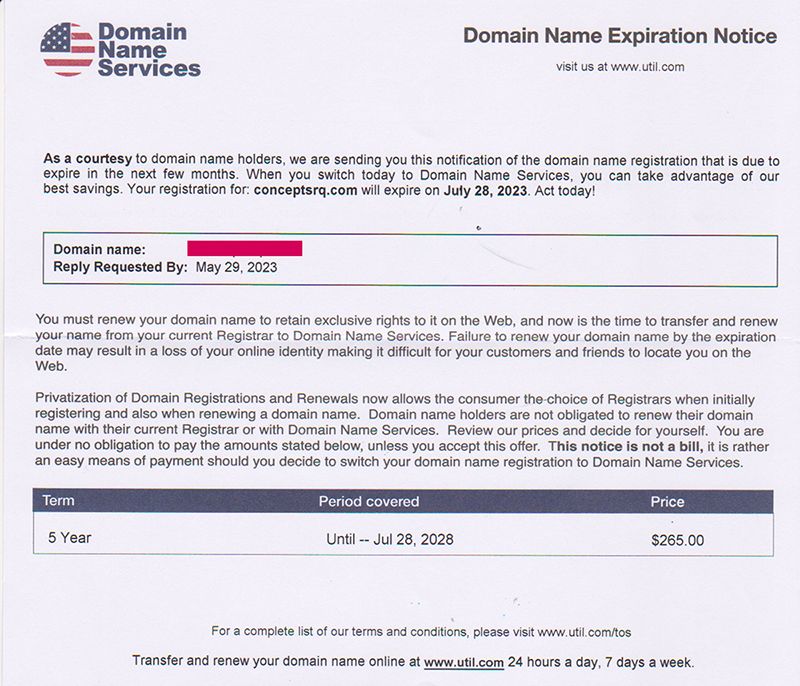There are web development companies all over the world – legitimate web design companies!
A lot of spam emails claim they are part of a large group of professionals from India and they want to design your next website. Sometimes these are start-ups or inexperienced tennagers, but sometimes these are malicious emails just trying to get your information and take your money.
You’ve probably seem an email like this:
Hello,
I sincerely hope you are doing well.
We are India based Web Design company with primary focus on SEO based Website Design & Development (PHP development).
We have a dedicated team of 150 professional designers, developers and SEO specialists; especially for Graphic/Flash/3D designing.
We can assure you of getting quality works. Most firms overseas have achieved a significant amount of savings by outsourcing either part of, or their entire work to us in India.
We would like you to give us an opportunity to work with your company and AMAZE you with our service.
Please let us know in case you are interested.
Kind Regards,
Damita
They always use an outlook email or Google email address (Free email accounts). Never a full name, phone number, company name, address, or website.
Some spammers will crawl the web to collect email addresses so they can sell them to other spammers. An email address once posted on the web is likely to be spammed forever, even if was removed from the web.
Hi,
I am reaching out to see if there is anything that would like to upgrade, repair, or redesign on your site.
I am web Designer / Developer that can do just about anything you can imagine at very inexpensive prices.
Let me know what you think.
Thanks & Regards.
Akshay
And...
Hi,
I am Georgiaa Web Development Manager in India and I work with 100+experienced IT professionals who are into:
Website Designing, Web Development, PHP Development, e-Commerce solutions, iPhone And Android Apps Development.
May I know if you are interested in any of these services?
If you are interested, then I can send you our past work details, company information and an affordable quotation with the best offer
Thanks & Regards,
Georgia
Web Development Manager
Back in 2012 there was a BBC article that said India was leading the world in junk emails. But times change.
According to Digit News in 2021 almost half of all emails sent were spam, with Russia as the top country of origin (24.77%) with Germany (14%), China (8%) and the US (10%).
Maybe I receive these emails from India because I manage a lot of domains. But I have to assume everyone who has a website gets these kind of emails (spelling and grammar as it was received).
Hello,
My name is Liliana Donato, and I am from India. I’m just checking with you to see if you’re interested in redesigning or upgrading your site, or if you’re interested in building a whole new site completely.
If so, I’d love to tell you a little bit more about my abilities and show you some of our work. We are having a very skilled website developer in our company with various abilities and can develop anything.
I look forward to hearing from you.
Thanks,
Liliana Donato.
Sometimes they use American sounding names:
Hello,
My name is Cheryl, I’m just checking with you to see if you’re interested in redesigning or upgrading your site, or if you’re interested in building a whole new site completely.
If so, I’d love to tell you a little bit more about my abilities and show you some of my work. I am a very skilled web designer with various abilities and can develop anything.
I look forward to hearing from you.
Thanks,
Cheryl.
Some of them claim to be a leading Search Engine Optimization Company.
HI ,
Hope you are doing well.
My name is John and working with a reputed leading Search Engine Optimization Company having the experience of getting our customer's websites top in Google and producing high revenue with top page rank.
I was searching related to your business on Google and saw your website is not on first page on Google for most of the relevant and user oriented keywords pertaining to your domain so
I was wondering.
If you would be interested in getting very Affordable Search engine optimization done for your website.
You Can contact me with:-
I'd be happy to send you our package, pricing and past work details, if you'd like to assess our work.
Feel free to discuss any other any queries.
Thanks & Regards
John
Manager-Business Development Team
As with any spam email, they get sent out because enough people will reply or follow a link. I don’t know of any other time or situation where you would encounter this type of unwanted communication.
What if you came home and there was a note on your front door that said: “I am a very good housekeeper, I work cheap hire me – Bob” Or if you received a letter from an unknown dentist that said you needed a root canal and to schedule an appointment – but it gave no address or phone number, only a first name and a Gmail address?
My name is Ryan and I run a website design firm with 70+ web designer.
Are you looking for a reliable and affordable website designer?
Our web designers specialize in HTML/CSS, PHP & MySQL, WORDPRESS, and GRAPHIC DESIGN...
PS: - if this is something, you are interested please respond to this email for Portfolio and Price list.
Thank you
Ryan
Business Development Executive
These are some of the ways you can tell if an email message is spam.
The message is sent from a public email domain
No legitimate organization will send emails from an address that ends ‘@gmail.com’, @AOL.com, @Outlook.com, @Yahoo.com Etc. A legitimate company will have their own email domain and company accounts.
Always look at the email address, not just the sender. A sender can use a bogus email address and select a different display name.
The domain name is spelled wrong – but just enough that it’s almost unnoticeable.
Always check the sender's email address listed at the top of your email client. Anyone can buy a domain name from a registrar. Every domain name must be unique, but there are plenty of ways to create email addresses that almost look right.
For example g0daddy.com, goda66y.com, paypall.com, ammazon.com… A scam email usually has a fairly bizarre email address behind what looks like a genuine sender name.
The email is poorly written
Poor spelling and grammar won’t be picked up on as easily by more gullible, older people, or people who have compromised IQ’s. This is why the famous Nigerian Prince scam is still around after all of these years.
Suspicious attachments or links
Never open any attachment from someone you don’t know – just don’t do it! Especially if there is an attachment and the sender never mentions anything specific about the document.
If you get an email that looks suspicious – never click on any links in that email. However, you can hover your cursor over links contained within an email to determine if the link URL is legitimate. If you have an email that looks like it’s from American Express you would expect to see a link something like: https://www.americanexpress.com/someothertexthere. If it’s a malicious email you will instead see something like http://russianscam.americanexpress.ru – or a long line of gibberish.
Sense of urgency
Legitimate email messages should not urge you to act quickly or try to frighten you by mentioning problems with your website or how much money and visitors you are losing.
If it sounds too good to be true
The old saying – if it sounds too good to be true it probably is. Also – nothing is free…
Promises of first page on Google, more visitors, free web design, hundreds of IT professionals, etc.
Hi there!
I hope you're well.
My name is Jospehine Waris I work for a local Search Marketing company in California.
I was doing some research on some of your competitors when I came across your website.
I ran an analysis on your website using one of our softwares and I have found some areas and simple coding issues that are harming your search rankings.
Would you be interested in this report?
I am more than happy to send it to you (free of charge of course) all I want is the opportunity to discuss how I could help improve the search traffic and customer enquiries you receive from your site?
May I send it to you?
Kind Regards,
Josh Waris
Or...
Hello,
Hope you are doing great.
I wasn't sure if you had seen the error report for your Website listing or not but when I come across your website while checking 3-4 pages of Google Result, I found some issues in your website which can be resolved by yourself even if you are not so much technical.
So if you give me the permission, I would love to share you report for your website without any charge.
Let me know if you are interested.
Regards
Samantha
If you are interested in the free of cost and no obligations audit and keywords recommendation report, please reply to this email and one of our consultants will share the report.
Or...
Hi,
My best designer built you an amazing new design for your website. May I send you the link?
Thank you,







